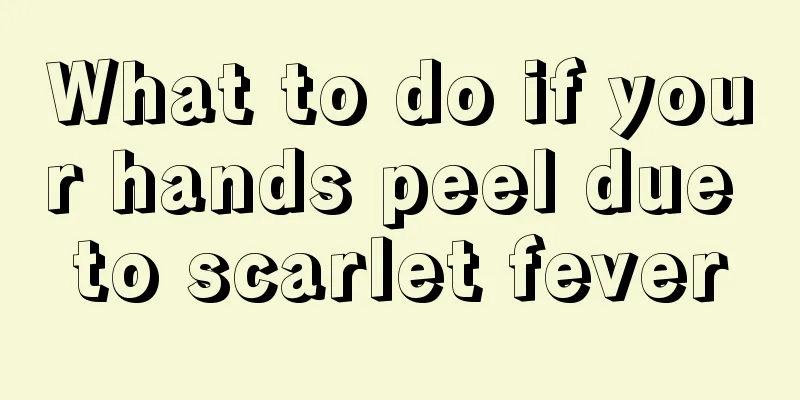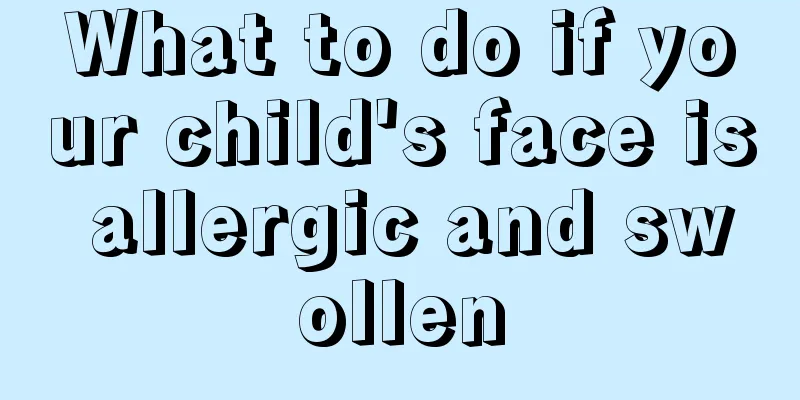What are the preventive measures for mumps in children?

|
Mumps is an acute respiratory infectious disease caused by the mumps virus invading the parotid gland. It is a common respiratory infectious disease among children and adolescents. It also occurs in adults and is caused by the mumps virus. The prominent symptom is non-purulent swelling and pain of the parotid gland. The virus can invade various glandular tissues or the nervous system and almost all organs such as the liver, kidneys, heart, and joints. Therefore, it can often cause symptoms such as meningoencephalitis, orchitis, pancreatitis, mastitis, and oophoritis. Then please follow me to learn how we can prevent children from getting mumps! Mumps, also known as mumps, is a common respiratory infectious disease in children or adolescents. This disease often occurs in winter and spring, especially in places where people gather, and is one of the important diseases that endangers children's health. Mumps is highly contagious, with droplets being the main route of transmission. Once the mumps virus invades various tissues and organs of the human body, it may cause complications such as meningoencephalitis, orchitis, pancreatitis, mastitis, and oophoritis. Therefore, prevention of mumps is urgent. 1. Personal hygiene habits: Develop good personal hygiene habits, and do "four frequent and one more": wash hands frequently, ventilate frequently, dry clothes and quilts frequently, exercise frequently, and drink more water. This is a common method of preventing mumps. 2. If any abnormal symptoms are found, seek early treatment. Once a child is found to have suspected mumps, fever or upper respiratory tract symptoms, he or she should go to the hospital in time to facilitate early diagnosis and treatment. 3. For drug prevention, take 30 grams of Banlangen or 9 grams of Honeysuckle decocted and taken once a day for 6 consecutive days. 4. Manage the source of infection and isolate the patient early until the parotid swelling completely subsides. Contact persons generally do not need to be quarantined, but they should be kept in collective children's institutions, military units, etc. for three weeks, and suspicious persons should be immediately temporarily isolated. 5. Passive immunization: General immunoglobulin, adult blood or placental globulin have no effect in preventing this disease. The blood and immunoglobulins of patients in recovery or specific high-cost immunoglobulins can play a certain role, but they are difficult to obtain and not easy to promote. 6. The live attenuated mumps vaccine has a good immune effect. It can be injected intradermally or subcutaneously, or by nasal spray or aerosol inhalation. The vaccine cannot be used for pregnant women, people with congenital or acquired immunodeficiency, or people who are allergic to egg white. 7. During the epidemic of respiratory diseases, you should be cautious when traveling. This is also a way to prevent mumps. During the epidemic of respiratory diseases, try to avoid going to crowded public places; when going out, you should wear a mask, especially on the bus. 8. We must strengthen our awareness of prevention. Mumps is at its peak in spring. If one side of a child's face suddenly swells up, and he or she looks listless and has a fever of around 38°C, he or she may have mumps. 9. Use medications rationally and pay attention to rest. When a child has mumps, he must take medications actively, rationally, and throughout the entire course, and pay attention to bed rest to avoid the occurrence of orchitis. For patients who have already suffered from mumps, the pain is often aggravated by opening their mouths to eat. Therefore, the child should be fed nutritious and easily digestible liquid food, semi-liquid food, or soft food. Do not feed the child sour, spicy, overly sweet, or dry and hard food, because these foods can easily stimulate the parotid gland to increase parotid secretion, stimulate the already swollen parotid duct opening, and aggravate the pain. Give the child plenty of water, which is conducive to reducing fever and the excretion of toxins. The above are the measures we should take to prevent mumps. Don't be lazy and don't bother to do it, and do it well to keep yourself and your family away from the harm of mumps, live happily, healthily and joyfully, and keep the disease away from us. |
<<: What are the effects of teething fever in babies?
>>: What to do if the baby wakes up easily during sleep
Recommend
Treatment of a two-year-old baby with a fever of 38 degrees
As soon as the baby has a fever, the mother will ...
When should children undergo phimosis treatment?
Genital development is very important, especially...
What is the cause of blisters on the child's body?
When a child develops blisters all over his body,...
A three-year-old girl has a peculiar smell down there?
Babies will encounter various problems during the...
What is the cause of the three-year-old's headache?
If children have frequent headaches during their ...
How to deal with a baby's low fever
Some babies often have a low fever when they are ...
How to treat urticaria in children
In real life, children's bodies are in the st...
Symptoms of myocardial damage in children
Every change in the baby after birth is watched b...
What is the reason for the baby's belly button to be red?
The baby's belly button is the interface of t...
What are some tips for treating sore corners of children's mouth?
Compared with adults, children are more prone to ...
What to do if your baby has bloodshot eyes
Some babies have eye diseases, so they need to pa...
Viral herpes stomatitis in children
Viral herpes stomatitis is more common among infa...
What to do if a five-year-old child stutters
For many children nowadays, when they are 1 to 2 ...
What to do if your child gets chickenpox
Chickenpox is also called "smallpox". W...
What are the dangers of enlarged tonsils in children?
Enlarged tonsils are very common in our lives, es...









